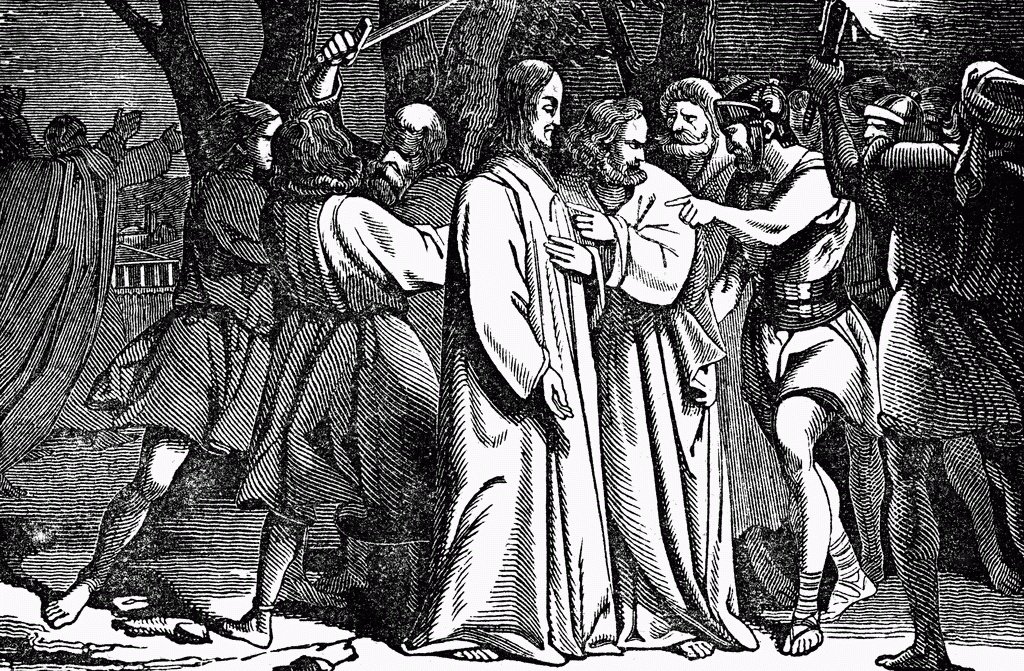
Copyright Florida Center for Instructional Technology. https://etc.usf.edu/clipart/
Today’s hymn for Holy Week from Sing Praise is “This is the night, dear friends” by Richard Sturch to a tune by CHH Parry. The original text was apparently in Latin by the 12th century French theologian Peter Abélard (perhaps better known for his romance with Eloïse), so if the theme seems strange, it’s because we don’t share the medieval mindset.
The overall theme of this hymn is Christ’s betrayal, which of course was most clearly seen in the actions of Judas. He is not named here, but clearly referenced, and described in verse 2 as the “wolf within the sheepfold”, picking up on one of Jesus’ own images of himself as the good shepherd in contracts to the wolves of evil. His act of betrayal in leaving the table of fellowship is described as “injustice joining its hand to treason’s, and buying the ransom price of humankind”. (Or should that really be “selling the ransom price of humankind”, since Judas gained money by handing Jesus over?)
That contrast or irony – that in accepting money in return for betraying Jesus he was actually enabling God to pay the ransom price for all our sins – is one of several in the words of the hymn. In verse 2 again, “the wolf … betrays himself to his victim’s will” (Jesus knew all along that he would be betrayed by one of his disciples, it was part of God’s plan) and “sin brings about the cure for sin’s own ill” which is a similar image to that of buying our ransom.
In verse 4, there are other ironies: Jesus is arrested by slaves – “he who destroys our slavery to sin”, another irony, perhaps symbolised when he heals the slave’s ear that has been cut off by one of his own disciples (although a bit of research suggests that the unfortunate servant was the high priest’s right-hand man rather than a mere slave). Also, “accused of crime, to criminals (he was) given” and he, the righteous Judge, is judged.
All these examples point to the fact that even in his last hours as a man, and subject to forces beyond his human control, Jesus continually demonstrated that he was overturning usual human expectations in order to bring about God’s kingdom.
I felt the translation of this hymn was overburdened with subordinate clauses, which for me got in the way of the message. Probably the knowledgeable will retort that this is Peter Abelard’s fault for writing such condensed and convoluted Latin? Is it really true, for example, that Jesus was handed over “to criminals” (v4)? Was he really arrested by “slaves”? Did Judas really “betray himself into his victim’s will” (v2)? I wasn’t sure that the end – of demonstrating the exchanges – justified the means.